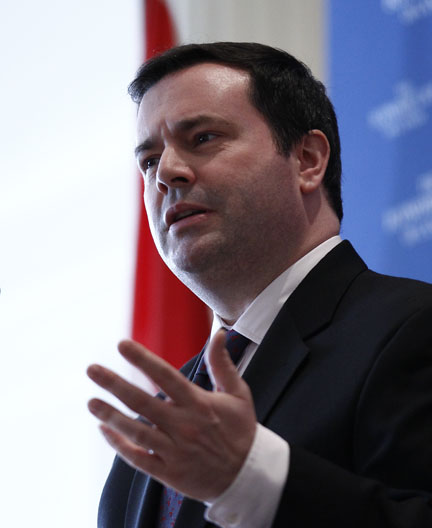The federal government said Tuesday it will ease immigration rules for skilled workers as it looks to alleviate labour shortages in the oil, mining, and construction industries.
 Immigration Minister Jason Kenney said the government will modify its Federal Skilled Worker Program, which has been skewed towards professionals, to try to attract trades people and other skilled workers that are in short supply in Canada during the current commodities boom.
Immigration Minister Jason Kenney said the government will modify its Federal Skilled Worker Program, which has been skewed towards professionals, to try to attract trades people and other skilled workers that are in short supply in Canada during the current commodities boom.
The new system will also increase the role of employers in the immigration system, allowing them to fill vital jobs faster.
“In the past it would be virtually impossible for skilled trades people to get past our rigid economic immigration programs,” Kenney said in a speech to a Calgary business audience. “They would need post-secondary degrees and high levels of language proficiency. This meant ... skilled workers couldn’t get in.”
Kenney said the new program will be based on job offers from Canadian employers that can show that the would-be immigrant has credentials and experience equivalent to Canadian certification standards.
Immigrants admitted under the new plan would not be required to be as fluent in English or French as professional applicants must be, though some language requirements would still apply.
According to ministry data, skilled workers currently make up just three per cent of all foreign skilled workers emigrating to Canada. Kenney said he expected the new rules to attract “several thousand” skilled workers initially, and then become more popular.
High prices for oil, metals and minerals have sparked an investment boom in Canada, squeezing the available supply of skilled labor and forcing employers to import temporary foreign labour to fill staffing gaps, a measure that Kenney said may be less needed as more skilled workers emigrate to Canada.
“The temporary foreign worker program is there for acute and short-term labour shortages and that will probably always be in some demand,” he said. “But I hope that by better linking the permanent immigrants with labor shortages there will be less dependence on the temporary foreign program.”
The government expects the new program to be in place later this year.
 Immigration Minister Jason Kenney said the government will modify its Federal Skilled Worker Program, which has been skewed towards professionals, to try to attract trades people and other skilled workers that are in short supply in Canada during the current commodities boom.
Immigration Minister Jason Kenney said the government will modify its Federal Skilled Worker Program, which has been skewed towards professionals, to try to attract trades people and other skilled workers that are in short supply in Canada during the current commodities boom.The new system will also increase the role of employers in the immigration system, allowing them to fill vital jobs faster.
“In the past it would be virtually impossible for skilled trades people to get past our rigid economic immigration programs,” Kenney said in a speech to a Calgary business audience. “They would need post-secondary degrees and high levels of language proficiency. This meant ... skilled workers couldn’t get in.”
Kenney said the new program will be based on job offers from Canadian employers that can show that the would-be immigrant has credentials and experience equivalent to Canadian certification standards.
Immigrants admitted under the new plan would not be required to be as fluent in English or French as professional applicants must be, though some language requirements would still apply.
According to ministry data, skilled workers currently make up just three per cent of all foreign skilled workers emigrating to Canada. Kenney said he expected the new rules to attract “several thousand” skilled workers initially, and then become more popular.
High prices for oil, metals and minerals have sparked an investment boom in Canada, squeezing the available supply of skilled labor and forcing employers to import temporary foreign labour to fill staffing gaps, a measure that Kenney said may be less needed as more skilled workers emigrate to Canada.
“The temporary foreign worker program is there for acute and short-term labour shortages and that will probably always be in some demand,” he said. “But I hope that by better linking the permanent immigrants with labor shortages there will be less dependence on the temporary foreign program.”
The government expects the new program to be in place later this year.







